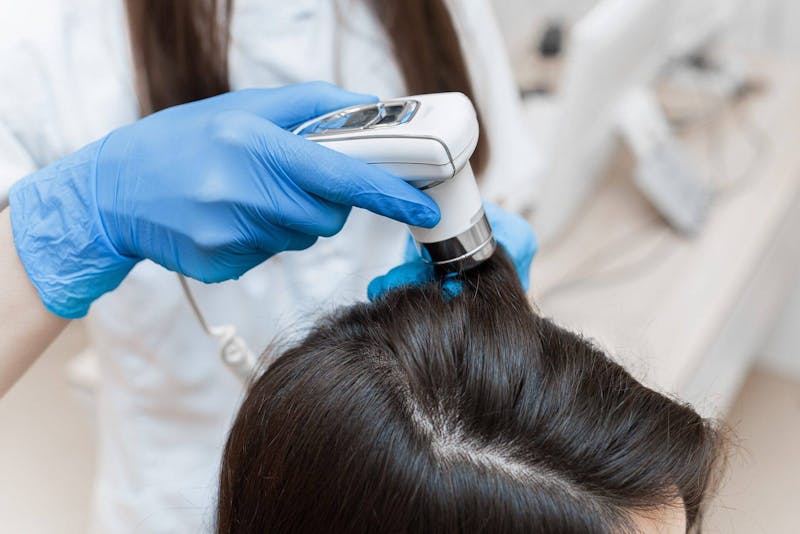Rooted in Results Let’s Get Growing
Hair loss is a symptom. We begin every journey by finding the cause, so your treatment plan isn’t just hopeful—it’s strategic, personalized, and proven to work.
Contact Our Team
Patients are often surprised to hear that we schedule a full 60 minutes for our medical consultations. To properly treat female hair loss, there is a lot that goes into diagnosing the type of hair loss. Trichoscopy is a method of evaluating the scalp and hair follicles at a higher magnification, often 30x to 60x magnification. So why is trichoscopy so important?
Diagnosing the cause and type of female hair loss is often quite complex. To the naked eye many types of hair loss can present similarly, and the patient’s experience can even be similar. It is not until an experienced practitioner reviews the hair and scalp using trichoscopy that important differences will become apparent. An article in the Journal of the American Academy of Dermatology (JAAD) titled Fibrosing alopecia in a pattern distribution provides a great example. The article reviewed a newly recognized form of scarring alopecia, known as fibrosing alopecia in a pattern distribution (FAPD).
One of the biggest issues with FAPD is that to the naked eye the hair loss occurs in almost exactly the same way as androgenic alopecia (FPHL). However, how we treat scarring alopecia is very different from FPHL. That means if a patient has FAPD, but did not receive trichoscopy, there is a likelihood they would be misdiagnosed and not receive the appropriate treatment plan.
Make sure that the practitioner will be performing trichoscopy so that you are receiving a thorough examination and can be confident in your diagnosis. At Medi Tresse all of our consultations come with trichoscopy. Our practitioners are highly trained on how to properly evaluate hair loss based on this extremely important diagnostic tool.